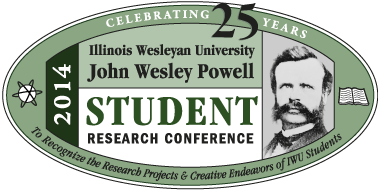Submission Type
Event
Expected Graduation Date
2014
Location
Room E108, Center for Natural Sciences, Illinois Wesleyan University
Start Date
4-12-2014 11:00 AM
End Date
4-12-2014 12:00 PM
Disciplines
East Asian Languages and Societies | German Language and Literature | Slavic Languages and Societies
Abstract
Martin Luther is well known for his 95 Theses, in which he rejects the Catholic practice of selling indulgences; but it was his groundbreaking translation of the Bible into German that instigated the standardization of the German language. After his excommunication, Luther was in hiding in the Wartburg Castle, where he translated his Bible into a vernacular and cohesive form of the German language. Many different dialects were spoken throughout Germany at the time making communication between regions difficult. Luther’s translation soon became the most influential Bible in Germany and was disseminated quickly due to the recently invented printing press. By tracing the printings of Luther’s Bible and the spread of Lutheranism throughout Germany, one can see how Luther’s translation exerted a major influence on the dialects of specific regions in Germany, especially those of Nuremberg, Augsburg, and Strasbourg, and how Luther ultimately contributed to standardization of the German language.
Included in
East Asian Languages and Societies Commons, German Language and Literature Commons, Slavic Languages and Societies Commons
Martin Luther: Vater Einer Allgemeinen Sprache? Martin Luther: Father of a Common Language?
Room E108, Center for Natural Sciences, Illinois Wesleyan University
Martin Luther is well known for his 95 Theses, in which he rejects the Catholic practice of selling indulgences; but it was his groundbreaking translation of the Bible into German that instigated the standardization of the German language. After his excommunication, Luther was in hiding in the Wartburg Castle, where he translated his Bible into a vernacular and cohesive form of the German language. Many different dialects were spoken throughout Germany at the time making communication between regions difficult. Luther’s translation soon became the most influential Bible in Germany and was disseminated quickly due to the recently invented printing press. By tracing the printings of Luther’s Bible and the spread of Lutheranism throughout Germany, one can see how Luther’s translation exerted a major influence on the dialects of specific regions in Germany, especially those of Nuremberg, Augsburg, and Strasbourg, and how Luther ultimately contributed to standardization of the German language.


